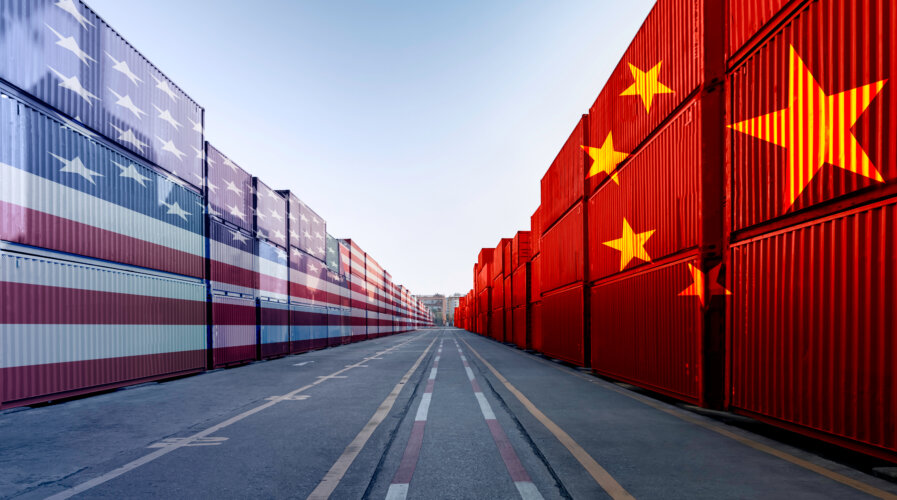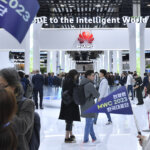
The US is still approving export licenses for blacklisted firms from China, including Huawei and SMIC.Source: Shutterstock
The US is still approving export licenses for blacklisted firms from China, including Huawei and SMIC
- In the first quarter of 2022, the Biden Administration approved 192 licenses worth over US$23 billion to ship US goods and technology to companies from China that are on a US trade blacklist.
- Between November 2020 and April 2021, suppliers to Huawei alone received 113 licenses worth US$61 billion.
- Another 188 licenses valued at nearly US$42 billion were approved for Semiconductor Manufacturing International Corp, one of China’s most crucial chip companies.
The US Commerce Department, via its Bureau of Industry and Security (BIS) agency, has over 639 China-based parties on its trade blacklist known as the “Entity List.” The list, invented during the Trump administration, comprises entities ineligible to receive any item subject to the Export Administration Regulations without a license. Of the total, over 155 entities were added during the Biden Administration alone.
A Republican lawmaker revealed last week that despite the red tape in place, the Biden administration had approved more than US$23 billion worth of licenses in the first quarter of 2022 alone. “The 192 licenses granted were out of 242 license applications decided between January and March 2022, a chart showed, and 115 of those approved contained controlled technology,” South China Morning Post stated.
Simply put, about 69.9% of the applications received were approved, granting companies the right to ship US goods and technology to those blacklisted Chinese companies. Approximately nineteen or 8% of the applications were denied, and 31 were returned without action.
“Overwhelmingly, (the Commerce Department) continues to grant licenses that allow critical US technology to be sold to our adversaries,” Republican Representative Michael McCaul, chair of the House of Representatives Foreign Affairs Committee, said at a hearing on combating the generational challenge of Chinese aggression last week. He was grilling US officials for allowing the licenses to be approved.
The data was revealed amid growing pressure on the administration of Democratic President Joe Biden to further expand a broad crackdown on shipments of sensitive US technology to China from Republican lawmakers, who now control the House of Representatives. Separately, in a statement last week, McCaul called the approvals unacceptable. “This critical US technology is going to the Chinese Communist Party’s surveillance and military efforts,” he said. The Commerce Department’s Bureau of Industry and Security (BIS) “must and can do more.”
The Commerce Department, however, defended the decisions. “Every license reflected in this data – which primarily involves exports of low-technology and other items that do not pose significant national security concerns were carefully reviewed,” the agency said in a statement. BIS also noted that licenses for some well-known Chinese companies are reviewed under policies set by the Trump administration that do not carry presumptions of denial.
Is China entirely blocked from US technologies?
Interestingly, Huawei, one of the biggest victims of the US-China spat, was also on the receiving end of those approved licenses. Between November 2020 and April 2021, suppliers to the Chinese tech giant received 113 licenses worth US$61 billion. Then there’s also Semiconductor Manufacturing International Corp (SMIC), the largest semiconductor foundry company in mainland China.
According to data by Reuters, SMIC had 188 licenses valued at nearly US$42 approved for the company. However, Commerce Department official Alan Estevez, who oversees US export policy, shared at the hearing last week that a Trump-era policy that allows Huawei to receive some US technology below the “5G level” is “under assessment.”
To recall, Huawei was added to the entity list by former Republican President Donald Trump in 2019 amid allegations of sanctions violations, spying capabilities, and intellectual property theft. Although suppliers of most companies added to the entity list see their requests to ship to the targeted firms denied, the Trump administration implemented a particular policy for Huawei.
The policy requires suppliers to pledge that they would deny Huawei access to things like 5G chips but allow it to receive other items, such as 4G chips. Estevez even brought up TikTok as a “threat,” noting that a powerful committee that reviews foreign investments in the United States was dealing with how to handle the popular Chinese-owned social media app.
READ MORE
- 3 Steps to Successfully Automate Copilot for Microsoft 365 Implementation
- Trustworthy AI – the Promise of Enterprise-Friendly Generative Machine Learning with Dell and NVIDIA
- Strategies for Democratizing GenAI
- The criticality of endpoint management in cybersecurity and operations
- Ethical AI: The renewed importance of safeguarding data and customer privacy in Generative AI applications


